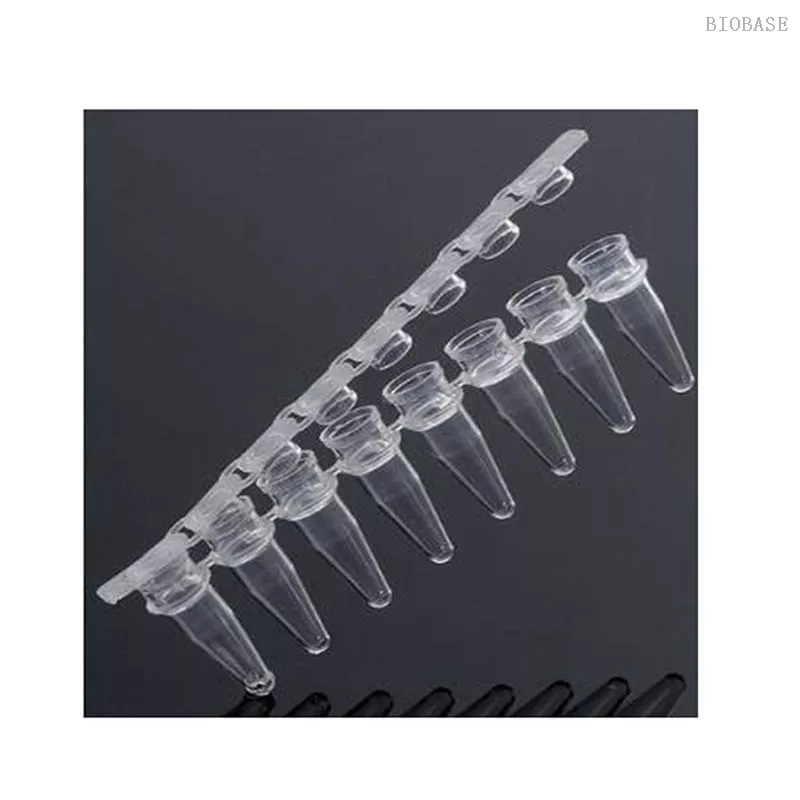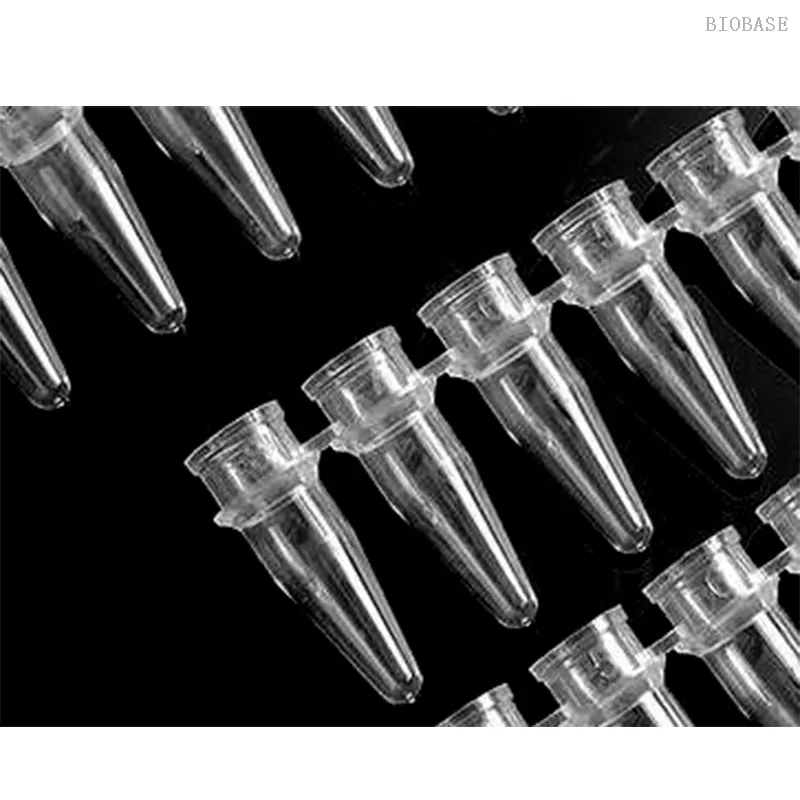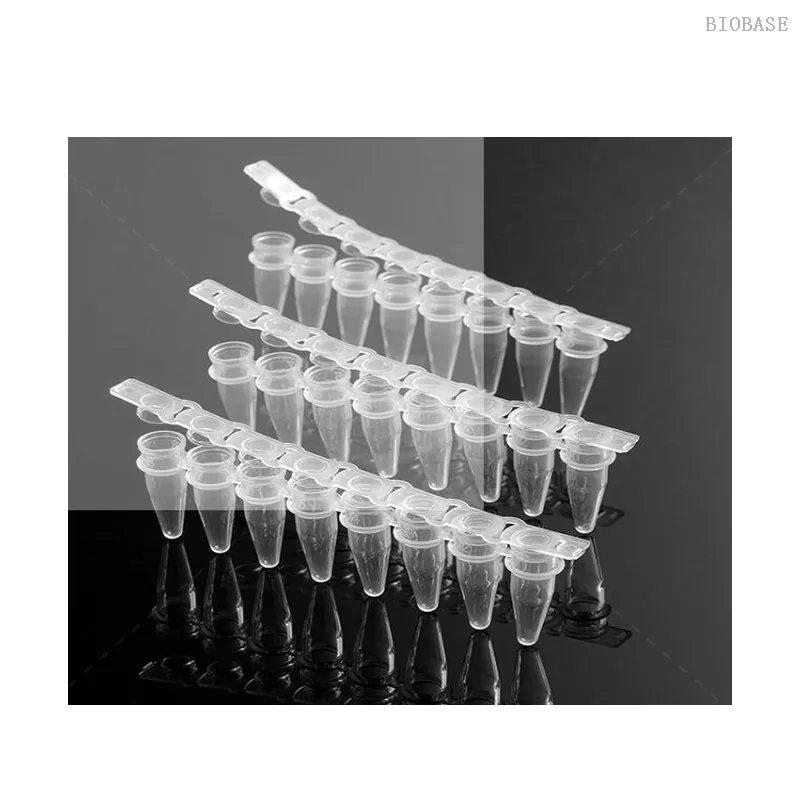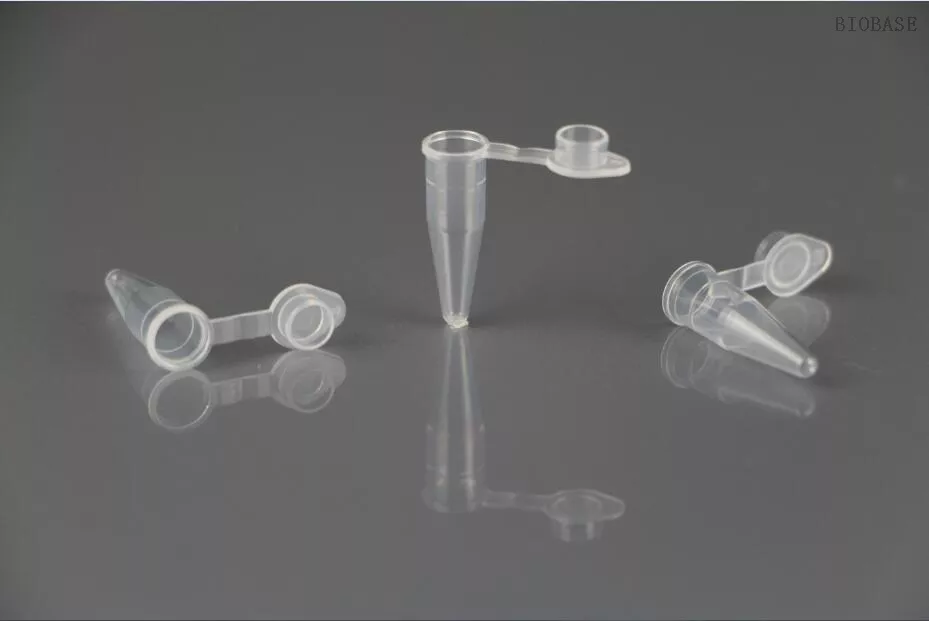Model No: SX25-PCR-Tube
Material:
PCR tubes are typically made of high-quality, polymer materials such as polypropylene (PP) or polycarbonate (PC). These materials are durable and resistant to the high temperatures involved in PCR (usually ranging from 50°C to 95°C).
Some PCR tubes are made with thin-walled polypropylene, which facilitates rapid heat transfer, ensuring that the sample can quickly reach the desired temperatures during each amplification cycle.
Size and Capacity:
PCR tubes are available in various sizes, but the most common size is the 0.2 mL tube, which is designed to fit standard 96-well or 384-well PCR plate formats. There are also 0.5 mL and 1.5 mL tubes for specific applications, such as high-volume reactions.
The tube's volume depends on the reaction volume, typically between 10 µL to 50 µL of reaction mixture.
Cap Options:
PCR tubes come with two main types of caps: flat caps and domed caps. Both cap types help to seal the tube and prevent evaporation during the thermal cycling process.
Flat caps are commonly used for single-tube reactions, while domed caps are preferred for 96-well or multi-tube racks. Some caps are designed to be optically clear for real-time PCR applications where fluorescence monitoring is required.
Some tubes come with attached caps (also known as flip caps) to prevent loss of caps during the PCR process, while others use separate caps that can be sealed with a press.
Heat Resistance:
PCR tubes are specifically designed to handle the thermal cycling process, which involves rapid temperature changes between denaturation (usually 94–98°C), annealing (50–65°C), and extension (68–75°C). The materials are designed to resist deformation or melting during these cycles.
Transparency:
PCR tubes are often transparent or clear to allow visual inspection of the contents. For applications like Real-Time PCR (qPCR), some tubes are optically clear to allow for fluorescence detection without interference from the tube material.
Sterility:
PCR tubes are typically sterilized to prevent contamination of the samples. They are often pre-packaged in individual sterile bags or racks to ensure the tubes remain clean and free of contaminants before use.
Graduation Marks:
Some PCR tubes feature graduation marks on the side to help with accurate sample and reagent volume measurements, although many users rely on pipetting techniques for precision.
Compatibility:
PCR tubes are designed to be compatible with various types of PCR equipment, including thermal cyclers. They typically fit into the corresponding reaction blocks of these machines, ensuring proper heat distribution across the tubes.
In addition to individual tubes, PCR tube strips (tubes connected together in strips of 8 or 12) are available for high-throughput applications, where multiple samples need to be processed at once.
Specification:
| Specification | Details |
|---|---|
| Classification | Centrifuge Tubes |
| Customized Support | OEM |
| Place of Origin | — |
| Model Number | 8 strip |
| Product Name | Micro Centrifuge Tube |
| Capacity | 0.1 ml / 0.2 ml |
| Color | Transparent |
| Packing | 125 Tubes/bag, 10 bags/carton |
| Cover | Flat cap |
| Supply Ability | 1200 Unit/Units per Month |
| Port of Shipment | Qingdao Port or other port |







Reviews
There are no reviews yet.